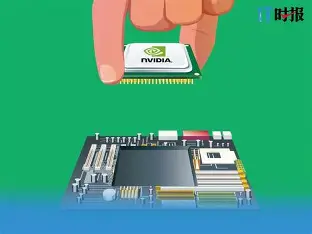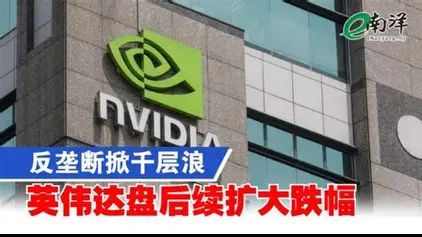Potential consequences and impact assessment: The initiation of a "further investigation" has cast a heavy shadow over Nvidia's prospects in the Chinese market, triggering a "chain reaction" that affects multiple parties. The possible consequences and impacts are comprehensive and far-reaching: Legal consequences: The sword of Damocles—huge fines. According to the amended Anti-Monopoly Law of 2022, for operators who illegally implement business concentration that has or may have the effect of excluding or restricting competition, enforcement agencies can impose fines of "less than 10% of the previous year's sales." More critically, the new law introduces a "punitive penalty" clause for cases that are "particularly serious, have particularly adverse effects, and cause particularly severe consequences," allowing fines to be determined at more than twice but less than five times the statutory amount.
Nvidia's revenue in China (including Hong Kong) for the fiscal year 2023 reached $5.785 billion. If this is used as the benchmark for "previous year's sales," even at the lower limit of a 1% penalty, the fine would be at least $58.5 million; if at the upper limit of 10%, the fine could reach $578.5 million. If its actions are deemed "particularly serious," the theoretical upper limit of the fine could soar to $2.89 billion (over 20 billion RMB). Although the law does not specify whether "sales" refers to global or domestic figures, referencing the precedent of the Qualcomm case, the likelihood of penalties based on sales in the Chinese market is very high. Regardless, this potential fine would be astronomical and would significantly impact Nvidia's financial performance.

Business impact: A breach of trust and market loss. Beyond direct financial losses, a more severe challenge lies in the damage to business reputation and market trust. The Chinese market is crucial for Nvidia, contributing about one-fifth of its global revenue and being its largest single market outside the United States. In the AI chip sector, despite facing U.S. export controls, Nvidia's chips like the H20, specifically supplied to China, remain in high demand.
However, this investigation will force Chinese customers to reassess the stability and security of their supply chains. The strong signal released by regulatory agencies may accelerate a trend that is already emerging: domestic substitution. Under the consensus that "one must be strong to forge iron," whether for compliance reasons or strategic security, China's computing centers, cloud vendors, and AI companies will be more motivated to turn to domestic chip suppliers such as Cambricon, Huawei Ascend, and Haiguang. This poses a long-term, undermining threat to Nvidia's hard-earned market position in China.
Industry impact: A "historic opportunity" for domestic AI chips. Nvidia's "troubles" are precisely the "tailwind" for its Chinese competitors. In the context of potential supply uncertainties, limited technical services, and possible hefty fines facing Nvidia, domestic AI chip manufacturers are ushering in an unprecedented market window. They can seize this opportunity to accelerate iterations in performance, ecosystem, and services, filling the market void left by Nvidia, thus gaining valuable breathing and development time in the global AI computing race.
Geopolitical impact: Another footnote in the tech competition. Against the backdrop of increasingly fierce Sino-U.S. tech competition, the investigation into Nvidia has inevitably been imbued with more geopolitical significance. As the global leader in AI chips, Nvidia's technology, products, and supply chain have become focal points in great power competition. China's regulatory agencies conducting an antitrust investigation against it is not only a maintenance of domestic market order but also an important manifestation of exercising its jurisdiction and shaping competition rules in global tech governance. It clearly indicates that no matter how large a company is or how advanced its technology, as long as it operates in the Chinese market, it must comply with Chinese legal rules.
Under the rules, there are no "exceptions." The Nvidia antitrust case entering the "further investigation" phase is a microcosm of the normalization and professionalization of antitrust enforcement in China. It clearly conveys a message: in the ocean of the Chinese market, scale is not a get-out-of-jail-free card, and technology is not a shield from liability. All companies, whether domestic or foreign, must compete fairly within the framework of the law.
For Nvidia, the next one hundred and twenty days will be a critical "window period" that determines its fate in China. How to actively cooperate with the investigation, communicate honestly, and propose practical rectification plans in a timely manner will be the only way to regain trust, mitigate penalties, and reshape its image.
For the entire industry, this storm may be an important turning point. It may not only reshape the competitive landscape of the AI chip market but also profoundly remind all market participants that respecting market rules and maintaining fair competition is the fundamental way to achieve long-term stability. Under the sunshine of the rule of law, no company can become an "exception." The trajectory of the Nvidia case is worth continuous attention from the global tech community.
